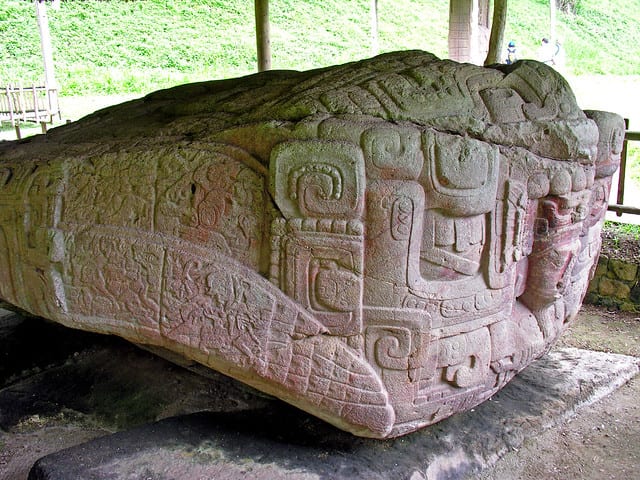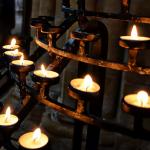
Are We Embodying Spiritual Life?
Some of us believe spiritual life is about what we think.
They are convinced it is more deeply spiritual to hold certain opinions and ideas. For them, spiritual life is essentially analytical and intellectual. They see growing spiritually as learning and finding answers to questions. Being able to explain spiritual life reasonably and rationally is significant for them.
Others of us are certain spiritual life is about behavior.
They trust specific actions and practices to strengthen spiritual life in them. For them spiritual life is something which needs to be experienced. They see us growing by doing, by taking steps into deeper spiritual life. Their priority is often to be consistent and regular in their practice.
I understand spiritual life differently. My experience has included participating in communities which held each of those perspectives.
Now I see spiritual life as a relationship.
In my experience we are embodying spiritual life. We are the hands and feet, the eyes and ears of the sacred. As we become more fully ourselves, we are more fully embodying spiritual life. We bring spiritual life into our everyday, physical lives.
I am not saying there is nothing more to learn, nor spiritual practices are meaningless. Spiritual life is greater, and more important, than our intellectual opinions and how we act.
Spiritual life is not something we are able to force or fit into our schedules. We cannot squeeze it into our carefully constructed mental frameworks. Spiritual life is stronger than our ability to analyze and to practice. We become the body of spiritual life.
Spiritual life fills our world and ourselves, pouring out of us into those around us.
No matter what we believe or what tradition we follow, we are the body of spiritual life.
How Are We Embodying Spiritual Life?
We live in a time when embodying spiritual life has become more challenging.
I know people who are afraid, or at least nervous, about spiritual life. It seems to be full of long, unfamiliar words and things which are difficult to explain.
Some of us heard things about spiritual life when we were children which hurt us or made us afraid. We may have heard we needed to be sorry for some of the things we did, or do other things instead. There were stories and lessons, but we do not really remember or understand them.
Others of us have never really had any experience with spiritual life. We have never really heard anything about spiritual life and do not understand why anyone would want to. Spiritual life seems to be a lot of rules for people who do not have enough common sense.
Part of embodying spiritual life, for many people, is participating in a spiritual community. Many of the practical aspects of have become more difficult over the last few weeks because of the Coronavirus.
When people in many spiritual communities got together a month ago they followed traditional practices. They may have, for example, taken time during their formal worship to greet each other. Many people shake hands or embrace to reinforce their relationships. The physical connection of those practices is part of embodying spiritual life.
Other practices included sharing a meal together. The people in the communities I spend time in shared bread and wine to remember our shared story and symbolize our unity.
There were also practices which used water to signify cleansing and renewal.
Each of these practice has been called into question, at least temporarily, by the spread of the Coronavirus.
How will we embody spiritual life now?
Embodying Spiritual Life in Contagious Times
I understand we need to make changes when our practices contribute to the spread of diseases. No matter how attached we may be to particular practices, public health is important.
My questions are longer term than stopping the spread of the Coronavirus.
What effect does it have on us when our ways of embodying spiritual life are put on hold? How permanent will these changes need to be?
Are there new ways we can embrace and embody spiritual life in these uncertain times?
My belief spiritual life is more than simply what we think or what we do is shaped by the ways we embody it in everyday life. It is not merely analytical or about how much willpower we have.
For many people the physical affirmation they receive from embodying spiritual life keeps them grounded. It is a significant part of their everyday lives.
Spiritual life is a key element around which spiritual communities are formed. It is in the air we breathe and the wisdom we share. There are tangible, physical aspects of spiritual life which make it real.
How will avoiding contact with people change the ways we embody spiritual life?
Exploring New Ways of Embodying Spiritual Life
New challenges can make it necessary for us to explore new ways of embodying spiritual life.
We find creative, innovative ways of embodying spiritual life each day. It can be easy for some of us to assume the practices with which we are comfortable are the right way to behave. Some of them are based in traditions and began before we were born.
“But we have always done things that way! I miss the old way we did it.”
Our need to change how we practice embodying spiritual life encourages us to grow. It helps us remember we want to share our values, not the specific methods we use.
We look at our communities in new ways and recognize what holds us together. Spiritual life is about practicing unity and connection and cleansing, not the traditions we received from others.
The threat of a Coronavirus can be intimidating and cause us to fear. At a time when people are fighting for their lives we examine our traditions in new ways.
We are the body of spiritual life.
How are we embodying spiritual life today?
What new ways of embodying spiritual life will we explore this week?
[Image by archer10 (Dennis)]
Greg Richardson is a spiritual life mentor and coach in Southern California. He has served as an assistant district attorney, an associate university professor, and is a lay Oblate with New Camaldoli Hermitage near Big Sur, California. Greg’s website is StrategicMonk.com and his email address is [email protected].












